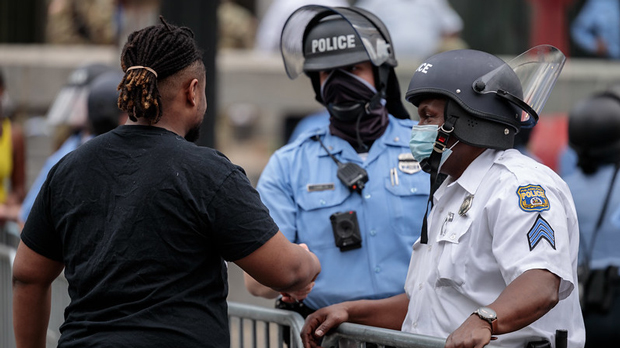

By Chief Joel F. Shults, Ed.D.
Twelve score and four years ago our fathers brought forth on this continent, a new nation, conceived in Liberty, and dedicated to the proposition that all men are created equal.
Our Founders did not achieve perfection of the ideals to which they affixed their signatures and “mutually pledge to each other our lives, our fortunes and our sacred honor”, but they did set in motion a people whose convictions would bring a citizenry closer and closer to liberty and justice for all.
As we face the culmination of what many are calling one of the most contentious and divisive times in American history, some are braced for another civil war. Are we that divided? We don’t have to be if we ponder what we can agree on.
- The Constitution is still relevant
The U.S. is the longest surviving government founded on a constitution. This brilliant document, as interpreted by the courts and amended from time to time, remains a worthy cornerstone for our government processes. If knowledge of our founding documents can be restored, our basic agreements about human rights and freedom will be highlighted. Many Americans still believe that the Constitution gives us our freedoms. This is a fundamental misunderstanding of the Constitution’s role in articulating rights that are “endowed by our Creator”. One doesn’t have to subscribe to a particular religion to understand the concept of Natural Law. Certain rights and responsibilities exist simply because we have them. They are not given by the Constitution but protected by the Constitution from government suppression.
- America has survived division before and can endure
Governments and dynasties eventually collapse after the zenith of their influence. The United States survived dissension in its earliest days and through this very hour. We have a history peppered with political intrigue, duels, verbal and physical assaults in Congress, a secession of a third of our states at the dawn of the Civil War, centuries of struggle for basic citizenship rights for women and people of color, and a variety of foreign entanglements and wars.
- We have made progress that should be celebrated
It has become trendy in some circles of influence to downplay the tremendous progress made in America. The existence of vestiges of inequality is not evidence of a completely corrupt system or culture. If we fail to recognize the achievements of the past and dwell only on perceived failures we end up with the kinds of frustration that have rocked our country in recent weeks with acts of destruction and violence rather than activism that results in reasonable solutions.
- Personal relationships are most important
Although even friends and family can have serious disagreements about subjects of great importance to them, I hope we have learned the limitations of social media. Even in this strange era of social distancing and face coverings, conversations in person remain essential to maintain our humanity. Facebook and Twitter ranting, even disregarding their manipulation, fuel anger and not conversation.
The role of the police
By now the reader is probably wondering when I’m going to get around to talking about law enforcement in this article. American law enforcement, along with other essential government functions, has evolved as needs and expectations have risen. Under the limits of the Constitution, policing in America has grown from the first federal law enforcement agency, the U.S. Marshal’s service, and elected sheriffs to nearly a million police officers of every stripe and shape. We can agree that the Constitution is still our greatest guarantee that law enforcement is exercised with attention to ensuring the rights of those accused of breaking the law while protecting the innocent. We may not agree on how well that is done, but the foundation of police power and legitimacy is a starting point in discussing any change and further progress that may be needed.
In terms of the past, we recognized that law enforcement has often been at the center of controversy but these divisions must no longer bind us to fear and distrust.
Celebrating the accountability that exists for police conduct is important. There has never been a more educated, qualified, diverse policing than today. Let’s agree that we’ve come a long way. Let’s celebrate our progress and build on it.
Finally, we must not abandon the need for personal relationships. As police agencies continue their efforts in community policing, more voices are being heard. The best chance of achieving whatever reforms may be needed lies in people coming together. That may be coffee with a cop, engaging in training opportunities alongside officers, or doing a ride-along. Bridging gaps between those who serve and those who are served requires open minds and positive personal contacts.
President Lincoln spoke wisely in the middle of the most severe national testing in our history. His words should be ours today: “With malice toward none, with charity for all, with firmness in the right as God gives us to see the right, let us strive on to finish the work we are in, to bind up the nation’s wounds, to care for him who shall have borne the battle and for his widow and his orphan, to do all which may achieve and cherish a just and lasting peace.”